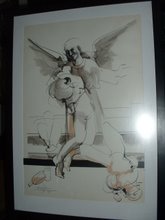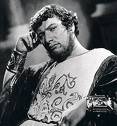viernes, 8 de junio de 2007
MC Rove (Karl Rove en la cena de la prensa)
El de las bromas sobre arrancar la cabeza de animalitos, la filatelia sin sellos buenos y el rap sin comentarios es Karl Rove, el verdadero jefe de Gabinete en la Casa Blanca. Con estas chanzas quizás intentara quitarse la pátina de intransigente, despiadado y sin el más mínimo sentido del humor que le caracteriza, tanto fuera como dentro de la casa Blanca. Juzguen el resultado por Uds. mismos. (el evento fue hace ya su tiempo, pero este blog cumple hoy trece días y, consecuentemente, no existía. Pero es que hay cosas que merecen tanto recordarse...).
P.S.- Este lunes 11 de junio, el genial y siempre pendiente Juan me manda un link que vale la pena consultar: se podrá estar o no de acuerdo, pero ¿qué son la cultura o la opinión sin crítica constructiva?
http://www.ronsuskind.com/articles/000032.html
Gracias, QBA
Suscribirse a:
Enviar comentarios (Atom)








3 comentarios:
Hace falta acabar con esto. Como sea.
Ciertas cosas acaban con el mero tiempo, señor Bowie... Por cierto, la Navidad del Señor Lawrence siempre estuvo demasiado lejana para mi gusto.
If you want to fully comprehend the extent of Rove’s perversity, you need to read this profile by Pulitzer Prize winner journalist/author Ron Suskind: http://www.ronsuskind.com/articles/000032.html
In another article [ http://www.ronsuskind.com/articles/000106.html ], Suskind provides, in a nutshell, the essence of Bush’s doctrine, as recounted by one of his senior advisers (although not cited expressly, the quote is generally attributed to Rove):
'In the summer of 2002, after I had written an article in Esquire that the White House didn't like about Bush's former communications director, Karen Hughes, I had a meeting with a senior adviser to Bush. He expressed the White House's displeasure, and then he told me something that at the time I didn't fully comprehend -- but which I now believe gets to the very heart of the Bush presidency.
The aide said that guys like me were ”in what we call the reality-based community,” which he defined as people who ”believe that solutions emerge from your judicious study of discernible reality.” I nodded and murmured something about enlightenment principles and empiricism. He cut me off. ”That’s not the way the world really works anymore,” he continued. ”We’re an empire now, and when we act, we create our own reality. And while you’re studying that reality — judiciously, as you will — we’ll act again, creating other new realities, which you can study too, and that’s how things will sort out. We’re history’s actors … and you, all of you, will be left to just study what we do.”'
Publicar un comentario